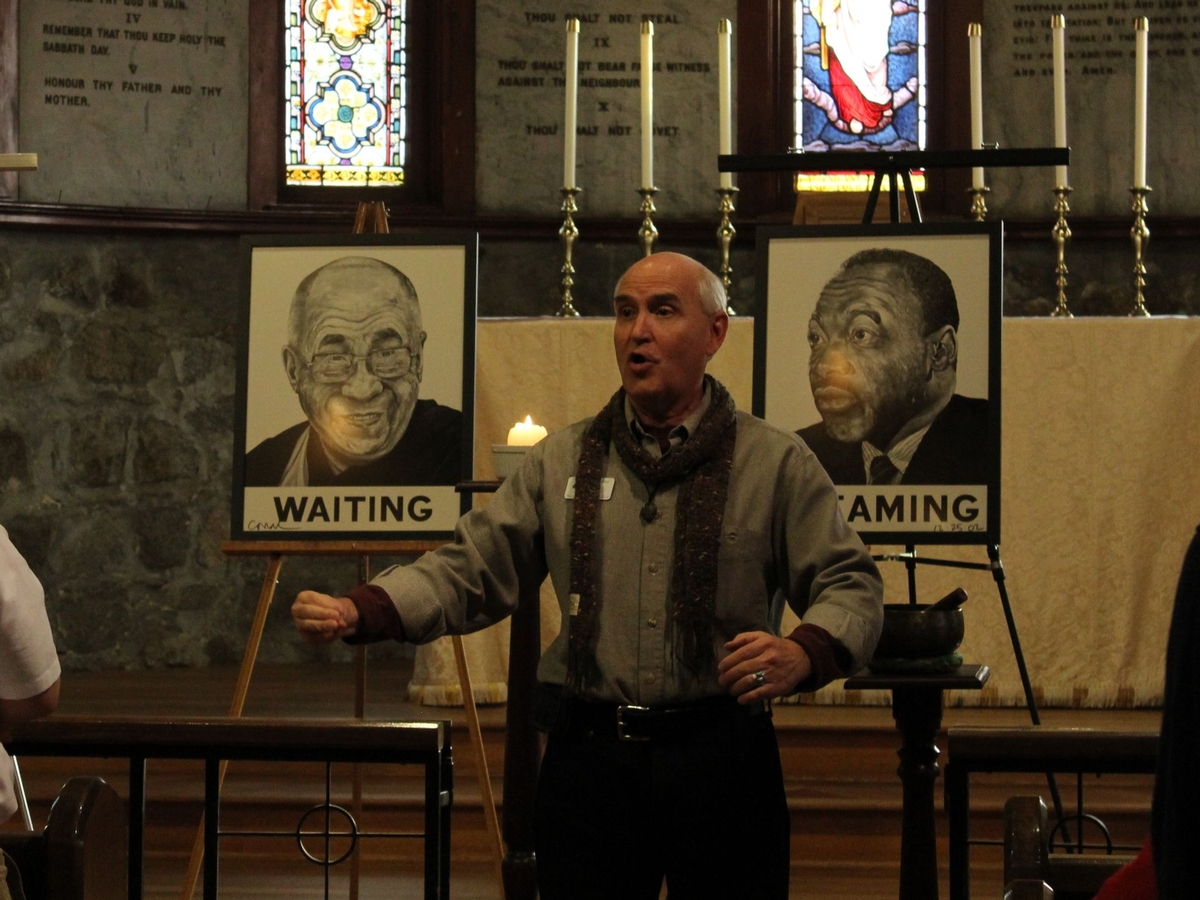The Content of Our Character

The Content of our Character
"I have a dream that my four little children will one day live in a nation where they will not be judged by the color of their skin, but by the content of their character." Rev. Dr. Martin Luther King, Jr.
I recently had the honor of being interviewed by eighth-grade journalist Joseph N. on behalf of The Knight's Scroll, the Gooden student newspaper. One of his questions was, "Why is chapel essential for all Gooden?”
It's a good question.
In considering my response, I thought of the quote above from the Reverend Dr. King. This is one of the most well-known quotes from, perhaps, his most famous oration: “the content of their character”
A word is a horse pulling a cart - you need to pay attention to what’s in the cart. The word “character” can pull a cart loaded with a wide array of meanings. From “uncle Mario is a real character," to "she's a character in the play," to "that building has striking character,” to “they are behaving out of character,” and more.
I believe the Reverend Dr. King is talking about what kind of human being one is. The truth of who one is in oneself.
In this “information age,” there is a danger in confusing information for knowledge and knowledge for wisdom. We are drowning in information - while knowledge is obscured and wisdom is, bluntly, hard to come by. Information without knowledge is of little use. Knowledge without wisdom is dangerous, often in the extreme.
Education in the Episcopal school tradition is about much more than simply passing on information. It is about a deep and abiding concern for what kind of people we want to be. It is about asking the questions: "What is a good person and how do I become one?" and "What is a good life and how do I live it?"
To respond to these foundational questions of being requires the knowledge that makes information of constructive use - and even more critically, it requires wisdom. Our great religious and philosophical traditions are the means whereby wisdom has been carried through the thousands of years of human history. These wisdom traditions provide us with resources the natural sciences, for all their intrinsic value, simply cannot.
The pursuit and acquisition of applied knowledge and wisdom are two core commitments of Episcopal education. They are wedded commitments at The Gooden School.
One of the ways of looking at a human being is from five different perspectives or "elements" -physical, intellectual, emotional, psychological, and spiritual. These five elements are symbiotically intertwined and constantly interacting with each other - what happens in any element is always affecting the others. Failure to attend to any one of them reduces what it means to be truly human. Chapel may be seen as primarily addressing the spiritual element, but it is also part of the much larger matter of character formation and human development. It is about the pursuit of wisdom. It is about those two big questions: "What is a good person and how do I become one?" and "What is a good life and how do I live it?"
It is about the content of our character.
David J. Kitch serves as chaplain to The Gooden School community. Chaplain David came to Gooden after six years as chaplain and educator at St. Martin's Episcopal School in Winnetka, CA. He received his Master of Divinity degree from Claremont School of Theology with an emphasis on spiritual formation. David has a background as a theater practitioner and consultant internationally and works with interactive narrative, mindfulness practice, and restorative justice.

